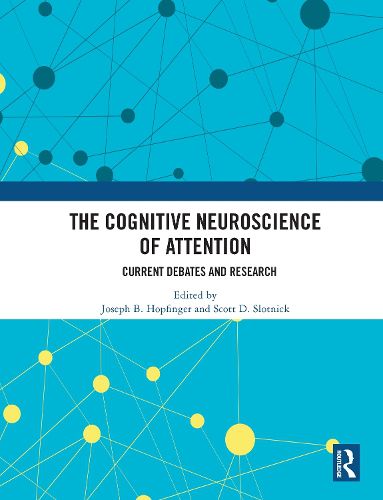Readings Newsletter
Become a Readings Member to make your shopping experience even easier.
Sign in or sign up for free!
You’re not far away from qualifying for FREE standard shipping within Australia
You’ve qualified for FREE standard shipping within Australia
The cart is loading…






Attention refers to our ability to selectively process the vast array of stimuli impinging upon our senses at every moment. The mental processes of attention are critical for allowing us to maintain focus and complete tasks efficiently, even within distracting environments. The brain mechanisms of attention have been studied for decades, yet much still remains unknown, and consensus on core issues remains elusive. A unique aspect of this book are chapters that highlight recent debates on critical issues in attention research. Each of these chapters includes a comprehensive discussion paper that is followed by peer commentaries and an authors’ responses. These debates include whether attention can modulate activity of even the earliest cortical processing region and whether changes in white matter are critical for plasticity-related effects of attention training. In addition to these discussion chapters, the book presents cutting-edge research on some of the newest theories of attentional control and selective attention, including the influence of practice, epigenetics, reward, social interaction, and distractor suppression. These studies employ advanced cognitive neuroscience methods such as neurostimulation, functional neuroimaging pattern analysis, and the evaluation of oscillatory brain activity to shed light on the brain mechanisms underlying attention.
The chapters in this book were originally published as articles in various issues of the journal Cognitive Neuroscience.
$9.00 standard shipping within Australia
FREE standard shipping within Australia for orders over $100.00
Express & International shipping calculated at checkout
Attention refers to our ability to selectively process the vast array of stimuli impinging upon our senses at every moment. The mental processes of attention are critical for allowing us to maintain focus and complete tasks efficiently, even within distracting environments. The brain mechanisms of attention have been studied for decades, yet much still remains unknown, and consensus on core issues remains elusive. A unique aspect of this book are chapters that highlight recent debates on critical issues in attention research. Each of these chapters includes a comprehensive discussion paper that is followed by peer commentaries and an authors’ responses. These debates include whether attention can modulate activity of even the earliest cortical processing region and whether changes in white matter are critical for plasticity-related effects of attention training. In addition to these discussion chapters, the book presents cutting-edge research on some of the newest theories of attentional control and selective attention, including the influence of practice, epigenetics, reward, social interaction, and distractor suppression. These studies employ advanced cognitive neuroscience methods such as neurostimulation, functional neuroimaging pattern analysis, and the evaluation of oscillatory brain activity to shed light on the brain mechanisms underlying attention.
The chapters in this book were originally published as articles in various issues of the journal Cognitive Neuroscience.